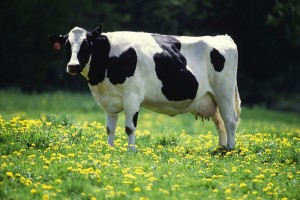“For [Ellie] Tom’s death meant quite simply that Tom was gone now for good and was never coming back. [Jack] could see that this was a perfectly sound position. But for him it meant just as simply – though it was a position much harder to argue for – that Tom had come back…He’d come back as surely as if that letter announcing his death had really been Tom himself knocking on the door.”
 Booker Prize winner Graham Swift has never shied away from literary challenges, and with this novel he tackles two issues which few other writers would even attempt, much less succeed in overcoming. This novel is almost totally about death in all its aspects, with no humor to leaven the heavy mood and the profound sadness which the novel ultimately evokes. And, making his subject and themes even more difficult to bring to life, he creates a main character and many peripheral characters who are inarticulate people who think in clichés and deal with the everyday challenges of their lives in “tried and true” fashion. The reader quickly becomes aware that these characters have few, if any, thoughts about the larger world, any perceived role they might have in it, and even how they might differ, in the grand scheme of life, from the animals on the farm to which they have devoted their lives. Still, Swift manages to create a novel which inspires the reader’s complete empathy with his limited main characters who stay true to their limited views of life and their limited expectations. His novel becomes, ultimately, a study of how an unreflective, uneducated everyman handles the disasters that fate and time deal out to him, over which he believes he has no control.
Booker Prize winner Graham Swift has never shied away from literary challenges, and with this novel he tackles two issues which few other writers would even attempt, much less succeed in overcoming. This novel is almost totally about death in all its aspects, with no humor to leaven the heavy mood and the profound sadness which the novel ultimately evokes. And, making his subject and themes even more difficult to bring to life, he creates a main character and many peripheral characters who are inarticulate people who think in clichés and deal with the everyday challenges of their lives in “tried and true” fashion. The reader quickly becomes aware that these characters have few, if any, thoughts about the larger world, any perceived role they might have in it, and even how they might differ, in the grand scheme of life, from the animals on the farm to which they have devoted their lives. Still, Swift manages to create a novel which inspires the reader’s complete empathy with his limited main characters who stay true to their limited views of life and their limited expectations. His novel becomes, ultimately, a study of how an unreflective, uneducated everyman handles the disasters that fate and time deal out to him, over which he believes he has no control.

The novel opens in a caravan park owned by Jack and Ellie Luxton on the Isle of Wight. Thirty-nine-year-old Jack, the only remaining member of his family, has just received a letter from the military saying that his younger brother Tom, an Army recruit with whom he has had no contact for thirteen years, has died from an IED explosion in Iraq. Jack’s family has never been open with their feelings, and as the author’s focus swirls backward, forward, and around again from the time between Tom’s departure, when at age eighteen he left their Devon farm for the army, and the present, Swift depicts their history and their values. Famous in the town of Marleston because two Luxton brothers died during World War I, where one of them received the Distinguished Conduct Medal, the Luxton family’s descendants still polish the medal once a year for Remembrance Day, where it is displayed. They have owned their land on Jebb Hill in Devon since 1614, but in recent history, after an epidemic of hoof-in-mouth disease, and later, mad cow disease, they have lost their entire herd, euthanized to protect the interests of the nation as a whole, though none of their herd has ever been infected. The history of the Luxton brothers from World War I and the devastating effects of the most recent killing of the entire herd of Friesian dairy cattle, have dominated the family history to the present, affecting every member, most especially Jack’s father, Michael.

Distinguished Conduct Medal
As the novel opens, Jack Luxton is alone, with a shotgun on the bed in the master bedroom, his wife Ellie having stormed out of the house in anger. They have disagreed about something Jack said after receiving the letter about his brother Tom’s death, and about her seemingly inappropriate answer. When Jack has to go to the mainland to receive Tom’s “repatriated” remains from Iraq, he goes alone to greet the plane with the ashes of Tom and two other British soldiers from Iraq. The burial service, which Jack has arranged in Marleston, the Devon town where he and Tom grew up, is depicted in great, sensitive detail. Jack’s reaction to Tom’s death, despite their lack of communication for thirteen years, and his sudden return to the family’s old farm, now owned by the family of an investment banker which “weekends” there, are devastating events which upset Jack’s emotional equilibrium. His mother’s death, his father’s inability to communicate or to share his feelings with anyone, the father’s death, and Jack’s own ability to express himself only in words that sound like a greeting card, are also revealed through flashbacks, and the reader begins to understand the personal crisis that Jack is facing.
Swift’s swirling time frame reveals the family’s history (and Jack and Ellie’s long history) over several decades and creates an intimate portrait of people who have rarely had the leisure or the inclination to contemplate life’s verities. The characters are presented with the respect they deserve, while also shown with all their limitations. As Swift develops their characters within their own environments, he creates an almost symphonic narrative in which many facets of their lives and personalities sing out individually to create a grand picture of life on a larger scale, while emphasizing their limitations and, sadly, their inabilities to see the broader picture. The many mysteries which intrigue the reader at the beginning of the novel are resolved as the points of view alternate between Jack and the other characters with whom he comes into contact. The author also interjects himself, occasionally, to explain (somewhat intrusively) what his characters are doing or thinking.

Caravan Park, similar to that of Jack and Ellie Luxton
Though a number of Amazon readers complain about the lack of strong plot in this character-based novel, I found it completely enthralling, as I came to know intimately the limited Jack and his self-serving wife Ellie as they dealt with their lives, present and future. The author is careful not to wallow in sentimentality, however much the reader may respond emotionally to the characters’ well-described predicaments. The lives of some peripheral characters are described in greater detail than necessary, however, and though these descriptions sometimes allow the themes to expand, they are a bit frustrating for a reader looking for more insight into the main characters. Mystical moments at the conclusion fit the narrative and reveal Jack’s state of mind but leave the novel open to the charge that the conclusion is somewhat artificial in its execution. Ellie’s reasons for her failure to accompany Jack to the funeral are thin, at best. The novel, overall, however, is stunning, a closeup of the lives of people dealing with complex problems endemic to the present day, people who do not understand how we got where we are or what, if anything, we can do about it.
ALSO by Graham Swift: MOTHERING SUNDAY, HERE WE ARE
Photos, in order: The author’s photo appears on http://www.literaryfestivals.co.uk
The Distinguished Conduct Medal may be found here: http://medalblog.blogspot.com
The Friesian dairy cows raised by the Luxton family: http://commons.wikimedia.org
Jack and Ellie Luxton’s caravan park on the Isle of Wight has thirty-two units, similar to this one: http://en.wikipedia.org

